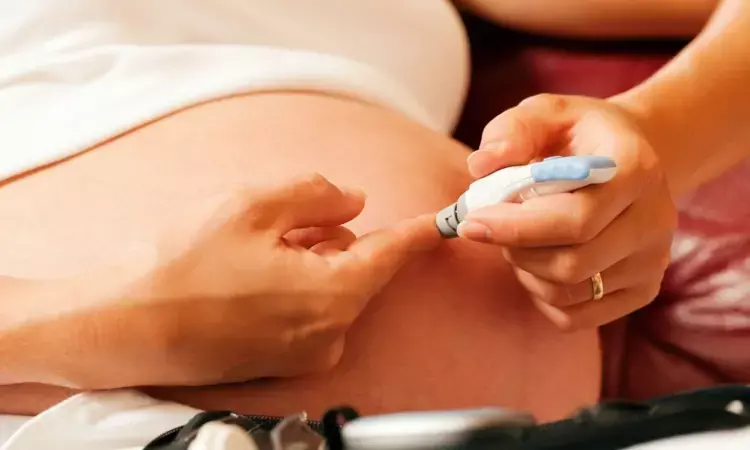- Home
- Medical news & Guidelines
- Anesthesiology
- Cardiology and CTVS
- Critical Care
- Dentistry
- Dermatology
- Diabetes and Endocrinology
- ENT
- Gastroenterology
- Medicine
- Nephrology
- Neurology
- Obstretics-Gynaecology
- Oncology
- Ophthalmology
- Orthopaedics
- Pediatrics-Neonatology
- Psychiatry
- Pulmonology
- Radiology
- Surgery
- Urology
- Laboratory Medicine
- Diet
- Nursing
- Paramedical
- Physiotherapy
- Health news
- Fact Check
- Bone Health Fact Check
- Brain Health Fact Check
- Cancer Related Fact Check
- Child Care Fact Check
- Dental and oral health fact check
- Diabetes and metabolic health fact check
- Diet and Nutrition Fact Check
- Eye and ENT Care Fact Check
- Fitness fact check
- Gut health fact check
- Heart health fact check
- Kidney health fact check
- Medical education fact check
- Men's health fact check
- Respiratory fact check
- Skin and hair care fact check
- Vaccine and Immunization fact check
- Women's health fact check
- AYUSH
- State News
- Andaman and Nicobar Islands
- Andhra Pradesh
- Arunachal Pradesh
- Assam
- Bihar
- Chandigarh
- Chattisgarh
- Dadra and Nagar Haveli
- Daman and Diu
- Delhi
- Goa
- Gujarat
- Haryana
- Himachal Pradesh
- Jammu & Kashmir
- Jharkhand
- Karnataka
- Kerala
- Ladakh
- Lakshadweep
- Madhya Pradesh
- Maharashtra
- Manipur
- Meghalaya
- Mizoram
- Nagaland
- Odisha
- Puducherry
- Punjab
- Rajasthan
- Sikkim
- Tamil Nadu
- Telangana
- Tripura
- Uttar Pradesh
- Uttrakhand
- West Bengal
- Medical Education
- Industry
Glargine U-100 is better than insulin for managing hyperglycemic pregnancy, study claims

India: A recent Indian study published in the International Journal of Diabetes in Developing Countries has suggested the preferable use of Glargine U-100 (Gla-100) for treating hyperglycemic pregnancy.
The researchers revealed that in patients with gestational diabetes mellitus (GDM), both Gla-100 & detemir insulin were effective in reducing glycemic levels, but Gla-100 led to fewer hypoglycemic episodes, achieved better glycemic control and did not require much dose intensification.
Gestational diabetes is a common medical condition that affects a high number of pregnant women worldwide. It is characterized by high blood glucose levels that develop during pregnancy, usually in the second or third trimester, in women with no prior diabetes history. GD usually resolves after delivery but can have significant short-term and long-term consequences for both the fetus and the mother.
Insulin therapy is the recommended primary treatment but evidence comparing the effectiveness and safety of effectiveness of different long-acting insulin analogues, including detemir insulin and glargine U-100, is limited. To fill this knowledge gap, Shatavisa Mukherjee, Department of Clinical Pharmacology, School of Tropical Medicine, Kolkata, West Bengal, India, and colleagues aimed to compare the safety and effectiveness of long-acting insulin analogues, glargine U-100 and detemir insulin, in hyperglycemic pregnancy.
The record-based observational study included 64 subjects, with data collected from medical records. The study assessed the incidence of hypoglycemia, demographic data, neonatal outcomes, and incidence of hypoglycemia.
The study led to the following findings:
- Both insulins were effective in reducing glycaemic levels, but glargine U-100 was associated with better glycemic control, fewer hypoglycemic episodes and less need for dose intensification.
- Both insulins were safe when considering infants’ health assessed at 6 months.
"Our findings showed that glargine U-100 may be a preferred treatment option for hyperglycemic pregnancy," the researchers concluded. "There is a need for further studies to optimize treatment strategies in hyperglycemic pregnancies."
Reference:
Samajdar, S.S., Joshi, S.R., Mukherjee, S. et al. Effectiveness and safety of Glargine U-100 and detemir insulin in hyperglycemic pregnancy: a record-based observational study. Int J Diabetes Dev Ctries (2023). https://doi.org/10.1007/s13410-023-01269-2
Dr Kamal Kant Kohli-MBBS, DTCD- a chest specialist with more than 30 years of practice and a flair for writing clinical articles, Dr Kamal Kant Kohli joined Medical Dialogues as a Chief Editor of Medical News. Besides writing articles, as an editor, he proofreads and verifies all the medical content published on Medical Dialogues including those coming from journals, studies,medical conferences,guidelines etc. Email: drkohli@medicaldialogues.in. Contact no. 011-43720751


